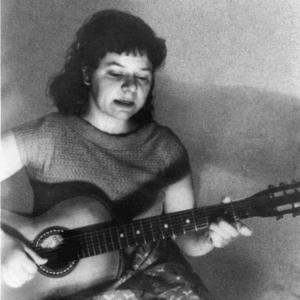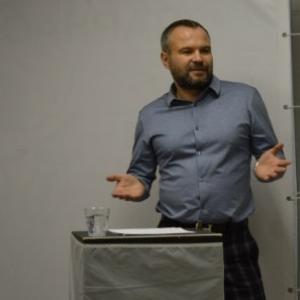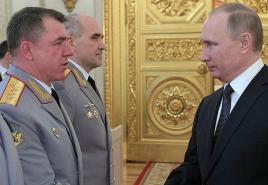English tenses rule in English. Tenses in English: detailed explanation
They are divided into 4 groups: simple (Simple/Indefinite), continuous (Continuous/Progressive), perfect (Perfect) and continuous perfect ( Perfect Continuous) times. What will help us choose the right option?
Marker words time in English language help to correctly determine the tense form, therefore it is recommended to learn them by heart. With an asterisk* Ambiguous time indicators that may occur in different cases are marked.
Table of satellite words for all tenses of the English language
Used to describe actions in the present that occur regularly, with repetition, and not just at the moment of speech. Used to describe a routine, schedule, habits, etc.
Usually- usually
I usually wake up at 7 o’clock. I usually wake up at 7 o'clock.
Always- Always
Alice always gets good marks at school. Alice always gets good grades At school.
Often- often
Terry often drinks tea in the morning. Terry often drinks tea in the morning.
Every day / morning / week
– every day/every morning/every week
Every week Rob goes to the gym. Rob goes to the gym every week.
Sometimes / from time to time / occasionally
- Sometimes
Sometimes I visit my Granny in the suberbs of Moscow. Sometimes I visit my grandmother in the suburbs of Moscow.
At the weekend / on weekends / on Saturdays / on Friday
– On weekends / Saturdays / Fridays
We have a party on Fridays. On Fridays we have a party.
Seldom/rarely- rarely
We rarely go to the swimming pool. We rarely go to the pool.
Never* / hardly ever– never / almost never
Ann never watches horror films. Ann never watches horror films.
2. Companion words Past Simple
Used to describe actions that happened in the past.
Yesterday- yesterday
Yesterday we were at home. Yesterday we were at home.
A week / a year ago– a week/year ago
Alex moved to the USA a week ago. Alex moved to the USA a week ago.
Last month/year– last month/year
Last month Fred sold his car. Last month Fred sold his car.
When*- When
I was in the kitchen, when you came. I was in the kitchen when you came.
3. Future Simple satellite words
Used to describe actions that will occur in the uncertain future.
Tomorrow- Tomorrow
Tomorrow Jared will go to London. Jared is leaving for London tomorrow.
Next month/year– next month/year
Jack will finish school next year. Jack will graduate from school next year.
In…days/years– in … days/years
Ronald will arrive in 2 days. Ronald will arrive in 2 days.
4. Companion words Present Continuous
Used to describe actions occurring at the moment, at the time of speech.
Now- Now
Mary is playing the guitar now. Now Mary plays the guitar.
At the moment- At the moment
The refrigerator isn’t working at the moment. The refrigerator is not working at the moment.
Still*- still
John is still washing the dishes. John is still washing the dishes.
5. Companion words Past Continuous
Used to describe actions that occurred at some point or period in the past.
From…till…*- From to …
Helen was watching a movie at the cinema yesterday from 5 till 7. Helen yesterday watched a movie at the cinema from 5 to 7.
- all day
He was working hard all day long. He worked hard all day.
6. Future Continuous satellite words
Used to describe actions that will occur at a specific moment or period in the future.
from…till…*- From to …
Tony will be working in the office tomorrow from 9 to 11 o’clock. Tony will work in the office tomorrow from 9 to 11 o'clock.
All day long* / for the whole day*
- all day
He will be writing an article all night long. He will write the article all night.
7. Companion words Present Perfect
Used to describe actions that have completed at the time of speech or the present as a whole.
Just- just now
Harry has just made a cake. Harry has just made a cake.
Already- already
I have already done my homework. I've already done my homework.
Yet- still
Liza hasn’t chosen the flowers yet. Lisa still hasn't chosen flowers.
Since- With
I haven’t played football since finishing the university. I haven't played football since graduating from university.
Recently- recently
Sally has recently been at the theater. Sally was recently at the theater.
Never* / ever*– never / ever
I have never been to London. I've never been to London.
8. Companion words Past Perfect
Used to describe an action that was completed at some point in the past.
Before* / after*- before after
I had brushed my teeth before I went to bed. I brushed my teeth before going to bed.
By*- To
Ann had spoken with her boss at 12 o’clock yesterday. Yesterday at 12 o'clock Ann spoke to her boss.
9. Future Perfect satellite words
Used to describe actions that will last until a specific point or period in the future.
By*- To
I will have been finished my project by the end of the month. I will finish my project by the end of the month.
Before*- before
Chris will have found a job before Christmas. Chris will find a job before Christmas.
10. Word-markers of Perfect Continuous tenses
As the name suggests, the band's Perfect Continuous times are a mixture of Perfect and Continuous. Therefore, their function is a long-term action that led to a result in the past / present / future.
for*- during
I had been reading for 5 hours. I've been reading for 5 hours already.
I have been reading for 5 hours. I've been reading for 5 hours already.
I will have been reading for 5 hours. I'll be reading for 5 hours already.
WARNING: marker words are not a panacea! As we see, some of them occur in several times at once. Often this can be explained like this: take the phrase “from ... till …” and see that it is a sign of the duration of an action, and duration can be in the past, present and future tenses. However, the presence of a companion word is a very good sign of the correct tense form.
There are present, past and future tenses in both Russian and English. Verbs ( verbs ) change over time ( tense ). But this is where the similarity with Russian times ends, because for each of these three times the British have other varieties. In this article, we will provide a short and simple guide, based on diagrams and tables, to understand tenses in English for dummies ( dummies ).
Table and examples of times:
| Aspect | Time | ||
| Present | Past | Future | |
| Simple | Martha cooks every day.(Martha cooks every day.) | Martha cooked a roast chicken yesterday.(Martha cooked fried chicken yesterday.) | Martha will cook a huge cake for my birthday.(Martha will make a huge cake for my birthday.) |
| Continuous | Martha is cooking fish at the moment.(Martha is cooking fish now.) | Martha was cooking a soup when we came home.(When we returned home, Martha was preparing soup.) | Martha will be cooking a rice pudding soon.(Martha will be making rice pudding soon.) |
| Perfect | Martha has already cooked many dishes.(Martha has already prepared many dishes.) | Martha had cooked for 2 hours by the time I joined her.(Martha had been cooking for 2 hours by the time I joined her.) | Martha will have cooked at least 20 dishes by 10 o’clock.(Martha will have prepared at least 20 dishes by 10 o'clock.) |
All three tenses (past, present and future) have three main aspects: simple ( simple ), long ( continuous ) and perfect ( perfect ). Long-term are used for repeated actions, or those actions that last over time.
Perfect tenses exist to describe actions or states of being that occurred in the past, and it does not matter when. The main thing is that at the time of the conversation they had already ended. These tenses are used whenever we need to connect the past and present.
Simple tenses in English for dummies
Simple times ( Simple tenses ) apply to actions or states in the past, present or future.

The table shows that the form of the verb in the simple past tense does not change depending on the person, so it is very easy to remember the structure of sentences. Well, knowledge of irregular verbs will come with practice of reading and listening.
Simple future tense ()
Talks about events that have not yet happened. Formed the same way for all persons - by adding an auxiliary verb will
+ base verb.
Long tenses in English for dummies.
Long times ( Continuous tenses
) are needed to describe the actions that occur at the time of speech. This can be either in the present period or at a specific period in the past or future.
Present continuous ()
The diagram clearly shows the difference between the continuous and simple forms of the present tense.

Formed using an auxiliary verb to be + ing - form of the semantic verb (Present Participle) .

Past Continuous

Constructed with an auxiliary verb to be in the past tense + semantic verb in the ing form .

Future Continuous
This tense is used to talk about actions that may be interrupted in the future, or to say what will happen at a specific time in the future. Compare the diagram with Future Simple .

The Future Continuous is formed using the following formula: Will be + verb-ing

Perfect or perfect tenses in English for dummies
Express completed actions, the result of which is important at the time of the story. May be accompanied by adverbs already
(already), yet
(Not yet), just
(just now), for
(during), since
(since) ever
(ever) never
(never). Formed using an auxiliary verb have
+ semantic verb in the Past Participle form.
present perfect
From the following diagram you can understand that the main difference between the present perfect and simple past tense is the moment in the past when the action ended. For the Present Perfect it doesn’t matter when it happened, but for Past Simple- important.

How the present perfect tense is formed:

Example: Has not already paid for the dinner. (He has already paid for dinner.)
The main difficulty of the English language for beginners is tenses. There are only 12 tenses in the English language, but due to the specifics of some tenses, confusion occurs. In this article I will tell you in detail about the tenses of the English language with an example of use.
From the article you will learn:
English tenses with examples and translation into Russian
In English, there are traditionally 12 tenses. English tenses are divided into 3 groups:
- Simple (Indefinite),
- Continuous (Progressive),
- Perfect.
They, in turn, in combination with the basic tense forms Present, Past and Future, form the corresponding tenses. Let's start with the group Indefinite.
Present Simple (Presen Indefinite) - Present Simple
How is it formed:
I form of the verb. This form is used in all persons and numbers except singular third person: then the endings – s, -es are added.
When to use:
1. The action occurs with a certain frequency. Used with such adverbs as always (always), rarely (rarely), often (often), usually (usually), never (ever), etc., in addition, with the word every (every day, every month, every year etc.)
She never listens to me.- She never listens to me.
I always go abroad in summer.— In the summer I always go abroad.
He goes to the theater every weekend.— He goes to the theater every weekend.
2. The effect is scientifically proven.
Water boils at 100 degrees.— Water boils at 100 degrees.
3. The sequence of actions is described.
I get up, wash my hands and face, have breakfast etc.— I get up, wash, have breakfast, etc.
Present Continuous - Present Continuous
It should be noted that some English present tenses can indicate the future.
How is it formed:
verb to be + I form of the verb + ing ending.
When used: 1. the action is happening at the moment.
I am watching TV now.- I'm watching TV now.
2. the action will take place in the near future, which is planned (!).
I am flying to New York next month.— Next month I'm flying to New York.
Present Perfect - Present Perfect
The peculiarity is that the English tenses of the Perfect group can denote the past, although they are called present.
Formation: have / has + III form of the verb.
When to use the present perfect tense:
1. the action happened today, this year, this week, etc., i.e. the period has not yet ended.
Has not written 10 books and he is just twenty!- He wrote 10 books, and he’s only twenty! (Life is going)
We have met this month.— We saw each other this month (the month has not ended)
He has met me today.- Today he met me.
2. with adverbs yet (yet), just (only), recently (recently), ever (always), never (never), already (already), etc.
I have just found out about this.- I just found out about this.
I've never been to England.- I have never been to England.
She has already done this work.- She has already done this work.
3. Action in the past affects the present state
We have gone to the forest and now he has a cold.— We went to the forest, and he caught a cold.
Past Simple - Past Simple
How to form the past simple tense:
II form of the verb, i.e. verb+ending –ed ( regular verbs), or II form of an irregular verb.
When to use:
1. The presence of a time marker yesterday (yesterday), last (past, last) or other.
He visited doctor last week.— Last week he visited the doctor.
I met him when I studied at the University.— I met him when I was at university.
2. The action happened in the past without any conditions.
I knew you would come.- I knew you would come.
3. Sequence of actions.
He took the taxi, asked to stop at the Time Square, looked through the window etc.— He took a taxi, asked to stop at Time Square, looked out the window, etc.
Past Continuous - Past Continuous
How to form the past continuous tense:
Verb to be in 2nd form + verb+ ing ending.
When to use:
1. The process lasted for a long time without interruption.
For example.
He was playing the piano the whole evening.— He played the piano all evening.
2. The process was interrupted by another activity.
They came in when she was speaking by the phone.— They came in while she was talking on the phone.
Past Perfect - Past Perfect
How is it formed:
2nd form of the verb have + 3rd form of the verb.
When to use:
1. When agreeing on times.
He said that he had not noticed you.- He said he didn't notice you.
2. One action happened before the other.
Example: He had left before I could figure out something.“He left before I could understand anything.”
3. There is a temporary excuse by.
He had made his decision by summer.— By the summer he made a decision.
Future Simple - Future Simple
How is it formed:
Shall (used only with 1st person) will+I form of the verb.
When to use:
The action will take place in the future. Used with time markers tomorrow, next, or a deadline is indicated.
I will call you tomorrow.- I'll call you tomorrow.
He will visit us in 3 weeks.— He will visit us in 3 weeks.
Future Continuous - Future Continuous
How it is formed.
Auxiliary verb will/shall+be+1 verb form+ing
When used. The process continues into the future.
She will be dancing the whole day tomorrow.- Tomorrow she will dance all day.
Present Perfect Continuous - Present Perfect Continuous
How is it formed:
Have/has + been + verb+ing
When to use:
1. The action lasts from a moment in the past to a moment in the present (translated by the present)
I have been waiting for this moment all my life.“I’ve been waiting for this moment all my life.”
2. with the preposition since (s).
Their family has been owning this castle since 17th century.— Their family has owned this castle since the 17th century.
Past Perfect Continuous - Past Perfect Continuous
How is it formed:
Had + been + verb+ing
When to use:
One action is interrupted by another or is its cause.
I had been working hard the whole year, so I was exhausted. “I worked hard all year and was just exhausted.
Future Perfect Continuous - Future Perfect Continuous
English tenses such as Future Perfect Continuous Past Perfect Continuous are used extremely rarely.
How is it formed:
Will/shall + have + been + verb+ ing
When to use:
The period of past and future is affected, the preposition of time by.
For example: I will have been working in this company for 10 years by 1st May.— By May 1, it will be 10 years that I have been working in this company.
Thus, we looked at 10 tenses of the English language (all based on 3 main ones).
Here you can find English tenses in tables with examples / Tenses in English in tables with examples.
1. The Present Perfect Tense
The Present Perfect is formed using the auxiliary verb have/has and the past participle form of the verb (Past Participle). The ways of forming sentences with regular and irregular verbs are different.
- With regular verbs
- With irregular verbs.
Please note these rules in the examples in the table below.
Education Present Perfect |
||
Affirmative form |
Negative form |
|
|
He (she, it) has seen her We have seen her You have seen her They have seen her |
I have not seen her He (she, it) has not seen her We have not seen her You have not seen her They have not seen her |
Have I seen her? Has he (she, it) seen her? Have we seen her? Have you seen her? Have they seen her? |
Cases of using the Present Perfect |
||
| 1. If an action is described, the result of which is visible in the present tense | The prisoners have laid an escape plan; here it is. |
The prisoners made an escape plan; here he is. |
| 2. Instead of Present Perfect Continuous with verbs that are not used with Continuous tenses (know, recognize, see, etc.) | Tom has known Mary for ten years | Tom has known Maria for 10 years |
2. The Past Perfect Tense
The Past Perfect is formed using the auxiliary verb had and the past participle form of the verb (Past Participle). The ways of forming sentences with regular and irregular verbs are different.
- With regular verbs
The ending -ed is added to the infinitive form.
- With irregular verbs.
The Past Participle form is used (third column of the table of irregular verbs).
Education Past Perfect |
||
Affirmative form |
Negative form |
Interrogative form |
|
He (she, it) had seen her You had seen her They had seen her |
I had not seen her He (she, it) had not seen her We had not seen her You had not seen her They had not seen her |
Had he (she, it) seen her? Had we seen her? Had you seen her? Had they seen her? |
Uses of Past Perfect |
||
| 1. When describing an action that occurred before a certain point in the past or before another past action. | The students had shown us the presentation by three o"clock We had called them when you came |
The students gave us a presentation at three o'clock We called them when you arrived |
| 2. An action that began before another action in the past and was still being performed at the time of its occurrence. | Mary had waited for me for several hours, when I found her | Maria had already been waiting for me for several hours when I found her |
3. The Future Perfect Tense
The Past Perfect is formed using the auxiliary verb have in the form of the future tense (will have) and the past participle form of the verb (Past Participle). The ways of forming sentences with regular and irregular verbs are different.
- With regular verbs
The ending -ed is added to the infinitive form.
- With irregular verbs.
The Past Participle form is used (third column of the table of irregular verbs).
Education Future Perfect |
||
Affirmative form |
Negative form |
Interrogative form |
I will have seen her He (she, it) will have seen her We will have seen her You will have seen her They will have seen her |
I will not have seen her He (she, it) will not have seen her We will not have seen her You will not have seen her They will not have seen her |
Will I have seen her? Will he (she, it) have seen her? Will we have seen her? Will you have seen her? Will they have seen her? |
Uses of Future Perfect |
||
| 1. When a future action is described that will occur before a certain point in the future. |
The students will have shown the presentation when your manager comes |
The students will have already shown the presentation when your manager arrives. |
Perfect Continuous Times
1. The Present Perfect Continuous Tense
This tense is formed using the verb to be in the Present Perfect form (have been/has been) and the present participle form of the verb (Present Participle). In other words, the Present Perfect Continuous is formed by using the auxiliary verb have/has been and adding the ending -ing to the semantic verb.
Education Present Perfect Continuous |
||
Affirmative form |
Negative form |
Interrogative form |
I have been waiting for you He (she, it) has been waiting for you We have been waiting for you You have been waiting for me |
I have not been waiting for you He (she, it) has not been waiting for you We have been waiting for you You have been waiting for me They have been waiting for you |
Have I been waiting for you? Has he (she, it) been waiting for you? Have we been waiting for you? Have you been waiting for me? Have they been waiting for you? |
Cases of using the Present Perfect Continuous |
||
| 1. A continuous action that occurs in the present tense with an indication of how long it takes to complete. | They have been painting the walls since nine o"clock |
They've been painting the walls since nine o'clock. |
| 2. A long-term action that began in the past and ended immediately before the moment of speech. | Although the sun is shining, it is still cold as it has been raining hard. | Although the sun is shining, it is still cold as it has been raining heavily. |
2. The Past Perfect Continuous Tense
This tense is formed using the verb to be in the Past Perfect form (had been) and the present participle form of the verb (Present Participle). In other words, the Present Perfect Continuous is formed by using the auxiliary verb had been and adding the ending -ing to the semantic verb.
Formation Past Perfect Continuous |
||
Affirmative form |
Negative form |
Interrogative form |
I had been waiting for you He (she, it) had been waiting for you We had been waiting for you You had been waiting for me They had been waiting for you |
I had not been waiting for you He (she, it) had not been waiting for you We had not been waiting for you You had not been waiting for me They had not been waiting for you |
Had I been waiting for you? Had he (she, it) been waiting for you? Had we been waiting for you? Had you been waiting for me? Had they been waiting for you? |
Cases of using Past Perfect Continuous |
||
| 1. A continuous action in the past that occurred at the time of the occurrence of another past action, indicating how long it took to occur. | They had been painting the walls for three hours when we came |
They had already been painting the walls for three hours when we arrived. |
| 2. A long action in the past that ended just before the moment of another past action. | John felt tired as he had been playing tennis for four hours. | John felt tired because he had been playing tennis for four hours. |
Those beginning to study the language of Shakespeare or those continuing their studies have repeatedly asked the question: “How many tenses are there in the English language?” Today, disputes and disagreements over quantity continue. And the whole problem is that we, Russian speakers, consider them as past, present and future, and our “brothers” who speak English call them shades.
Various reference books give numerous definitions of this grammatical phenomenon, but all are similar in that English tenses are a way of expressing actions indicating the period of its occurrence, and they are all built on the basis of changing verb forms. Actions can be expressed in Active Voice (active voice) and Passive Voice (passive voice). It is the first one that we will consider in this article.
English verb tenses - formation and use
It is better to start studying this category with an understanding of the whole essence. So, as in Russian, English has three tenses: present (Present), past (Past) and future (Future - although many grammarians also call it shade). Each of these segments has subcategories, the rules of use and formation of which cause difficulties.
Table: formation of tenses in English
| Sub categories | Time | Education formula |
| Indefinite (Simple) | Present | +
S+Vs(V) — S + doesn’t (don’t) + V ? Does (Do) + S + V ? |
| Past | +
S + V 2 (V ed) — S + didn't + V ? Did + S + V? |
|
| Future | + S + shall/will + V — S + shall/will + not + V ? Shall/will + S + V |
|
| Continuous (Progressive) | Present | +
S + is/am/are + V ing — S + is/am/are+ not + V ing ? Is/am/are + S + V ing |
| Past | +
S + was/were + V ing — S + was/were + not + V ing ? Was/were + S + V ing |
|
| Future | +
S + shall/will + be + V ing — S + shall/will+ not + be + V ing ? Shall/will + S + be + V ing |
|
| Perfect | Present | +
S + have/has + V 3 (V ed) — S + have/has+ not + V 3 (V ed) ? Have/has + S + V 3 (V ed) |
| Past | +
S + had + V 3 (V ed) — S + had + not + V 3 (V ed) ? Had + S + V 3 (V ed) |
|
| Future | +
S + will/shall + have + V 3 (V ed) — S +will/shall+ not + have + V 3 (V ed) ? Will/shall + S + have + V 3 (V ed) |
|
| Perfect Continuous | Present | +
S + have/has+ been + V ing — S + have/has+ not + been + V ing ? Have/has + S + been + V ing |
| Past | +
S + had + been + V ing — S + had + not + been + V ing ? Had + S + been + V ing |
|
| Future | +
S +will/ shall + have+ been + V ing — S +will/ shall + not + have+ been + V ing ? Wll/shall + S + have+ been + V ing |
Now that we've gotten acquainted with education, it's time to move on to consumption. Here comes the tricky part. If you have practiced and memorized the formation 2-3 times, then using it becomes more and more confusing. Let's look at English tenses with examples by subgroups.
The Indefinite (Simple) group reflects single, ordinary actions. Continuous (Progressive) emphasizes the duration of the process, just like Perfect Continuous. Their difference is that the second, despite the duration, is still completed or will end at a certain point. But the Perfect group is used to describe an event that has been completed, or that will be completed.
This entire description is approximate, each of them must be studied, practiced, compared separately, and then you can easily move to the next level. To clarify the situation a little, let's look at the temporary forms in the table.
Table: use of English tenses
Present Simple |
Past Simple |
Future Simple |
| 1. An action that always happens, often, usually | 1. An action that happened in the past, and we simply know the fact | 1. Normal, single action in the future |
| My father often goes to see his friends on Saturday. | I wrote a letter last week. | Next year I will come to this village again. |
| 2. Something you can’t argue with: scientific facts, results, natural phenomena, patterns | 2. Chronologically sequential actions in the past: one after another. | 2. Consistent actions in the future |
| The earth goes around the sun. | Yeterday morning I called my sister at first. Then I went to work. | I will come home. Then I will write a letter to my pen-friend. |
| 3. Repeated actions in the present | 3. Repeated actions in the past | 3. Recurring actions in the future |
| I usually get up at 7 oclock. Then I take a shower and have breakfast. | Last year I often traveled abroad. | Next year I will not often travel abroad. |
| 4. To express the future in subordinate clauses and time | 4. Assumptions about a future event (not a plan) | |
| As soon as I write a letter I’ll send it immediately. | I expect Mary will get this place. | |
| 5. In jokes, sports commentary | 5. Requests, threats, refusal to do something, offers to do something, promises | |
| What’s worse than having termites in your piano? Crabs on your organ. | Thank you for lending me the dvd disk. I'll give it back on Monday. | |
| 6. With verbs not used in the Continuous (feelings, desires, perceptions) | ||
| I don’t understand what are you talking about. | ||
| 7. Schedules of trains, buses, movies in the cinema, matches, lessons | ||
| The train leaves at 5 p.m. | ||
Present Continuous |
Past Continuous |
Future Continuous |
| 1. Action at the moment of conversation or covering a longer period in the present | 1. The action took place (lasted) at a certain moment in the past | 1. An action that will last in the future |
| Don’t bother the teacher, she is writing a letter now.I am attending music classes now. | This time last month I was sitting in the lovely French cafe. | Would you like to visit a museum tomorrow evening? No, I will be watching the match at this time. |
| 2. Happens around you at the time of conversation | 2. In the main clause with a when clause, where the first lasted when the other happened | 2. If plans, deliberate action are reported |
| Look! He is falling down. | I was sleeping when my cell-phone suddenly rang. | I will be going to the cinema tomorrow. |
| 3. A situation that changes | 3. Parallel long lasting in past | 3. Asking about someone's plans as a polite request |
| His French is becoming better and better. | While I was taking a shower, my husband was cooking the dinner. | Will you be going out at 7? I need your car. |
| 4. Planned actions for the future (Meaning: to gather = to be going to) | 4. Actions that took place within a certain time frame, during a limited period. | 4. Parallel actions in the future |
| I am buying a new flat tomorrow. | I was cleaning the flat the whole weekend. | While you will be doing shopping I will be repairing my car. |
| 5. Too often repeated actions that cause irritation, reproach, disapproval | 5. Too often repeated actions, habits that caused irritation, blame, reproach | |
| He is too often complaining about. | Yesterday my friend was too often losing his papers, books and tests. | |
Present Perfect |
Past Perfect |
Future Perfect |
| 1. An action that began in the past, but its result is connected with the present, so to speak, in person | 1. An action that occurred before another, later action in the past | 1. Will end before a certain point, events in the future |
| Is Jim at home? No, he has already gone to Paris. | I had come home before my sister washed the dishes. | I will have done my homework before the match begins. |
| 2. The action began in the past and continues now | 2. Finished by a certain point | 2. To communicate the likelihood of an expected action |
| My mother has always wanted to live in a small country house. | I had given up smoking by the end of the holidays. | The citizens will have noticed the false government’s solutions. |
| 3. To indicate actions indicating the period, how many times they were repeated | 3. An action that began in the past occurred before or during another event also in the past | |
| It is the first time I have driven. | I knew exactly that my friends hadn’t met since Andy’s party. | |
Present Perfect Continuous |
Past Perfect Continuous |
Future Perfect Continuous |
| 1. An action that began in the past and continues, occurs in the present (at the time of conversation) | 1. An action that began in the past and was happening when another event occurred | 1. An action that begins in the future and will continue until another moment in the future. |
| They have already been painting the wall for 5 hours. | He had been driving a car yesterday when his father came. | I will have been having dinner when my boyfriend comes. |
| 2. An action that was completed before the conversation took place | 2. An action that began in the past and lasted for a certain time | |
| She has been ironing all day long. Now, she is too tired to go out. | He had been repairing his car for an hour last weekend. |
The grammar of tenses in English is very extensive, which is why this table is not enough to fully understand and figure out which is which. It is better to study each separately and then together.
Sometimes it is actually difficult to understand whether an action lasted or ended, whether it is happening in the past or in the present. But everything is learned in practice. That is why it is recommended to study the tenses of the English language with examples that will not only demonstrate the method of formation and use, but also show typical situations of use.
Remember, when choosing verb tenses in English, follow following diagram .
- Determine whether the action refers to the past, present or future (Present, Past, Future)
- Figure it out: what you see or what you know.
- If you know exactly about the event (no matter where), then the Simple group.
- If you see, then: the action itself is Continuous, traces or signs, the result is Perfect, I see the action, but I compare it with what I saw before - Perfect Continuous.
So, let's summarize. We can say that there are 12 tenses in the active voice, reflecting the periods of action.
- Present Simple (Indefinite), Past Simple (Indefinite), Future Simple (Indefinite)
- Present Continuous (Progressive), Past Continuous (Progressive), Future Continuous (Progressive)
- Present Perfect, Past Perfect, Future Perfect
- Present Perfect Continuous, Past Perfect Continuous, Future Perfect Continuous
Tenses in English will take a lot of your energy. Well, what can you do? But tables will help you remember and put everything in your memory faster and easier, although they are not enough for complete comprehension.







